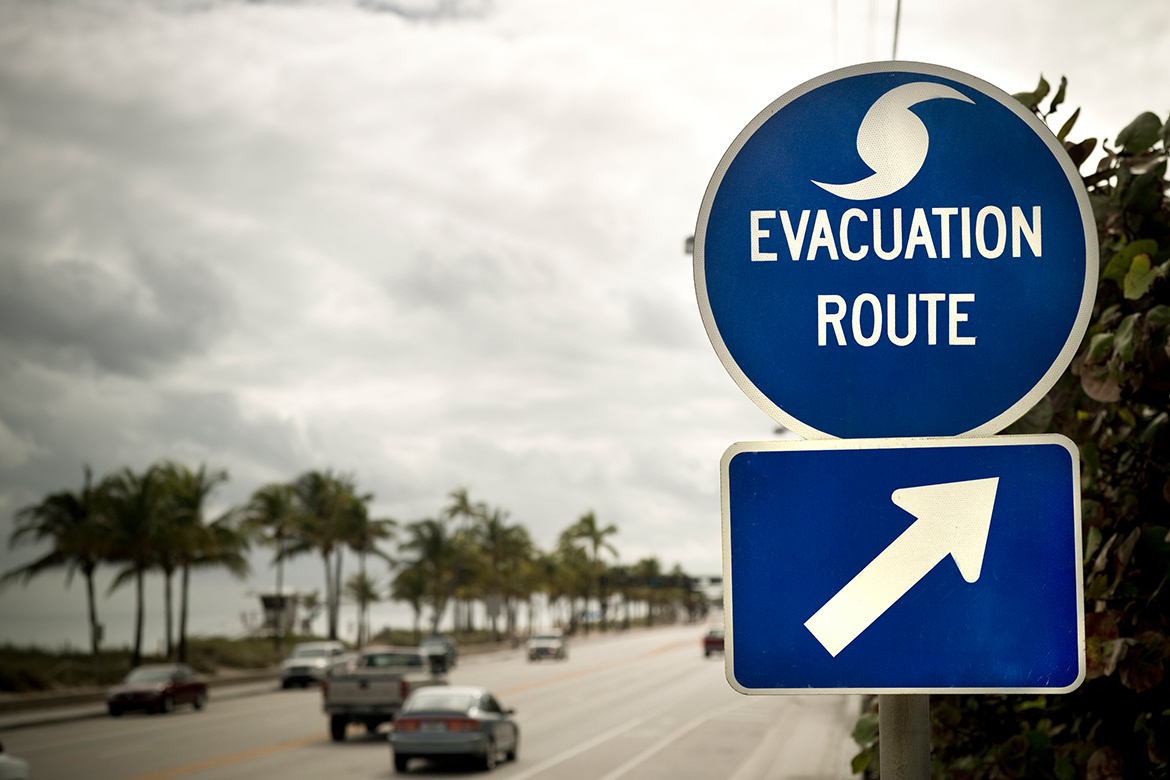Experts now believe 20 named storms will form during the 2020 Atlantic hurricane season. That prediction comes from Colorado State University who also expects nine of those will become hurricanes, with four developing into major hurricanes. With these storms on the horizon, it is essential to fool-proof your hurricane evacuation plan.
That is a high number in any year. But it adds more stress in a year when the country faces the COVID-19 pandemic, and states like Florida are among the hardest hit as of July.
Related: Download Our Hurricane Guide
A hurricane evacuation plan is more important than ever in current times. Coming up with a hurricane preparedness list now will save you valuable time in case you need to evacuate. Keep reading to learn how to prepare for a hurricane and considerations for densely populated areas.
A Brief Look At Past Hurricane Evacuations
There have already been six named storms as of mid-July and even some activity. That seems like a lot, but the busiest part of the season is still to come.
Atlantic hurricane season runs from June 1 to November 30, generally peaking around September. As the season continues, you are more likely to see hurricanes that both last longer and pack more power.
Hurricanes are a regular part of life by the beach. But history also tells that they are especially dangerous in densely populated areas. For instance, a storm that hits Pensacola in the Florida Panhandle is terrible. Yet it is not as potentially catastrophic as one that strikes South Florida.
That’s because South Florida has a much larger population. If there’s a mandatory evacuation there, things can get messy fast. Houston in 2005 is an unfortunate example of this. With Hurricane Rita approaching, nearly 4 million people fled the area at the same time. The resulting evacuation led to historic traffic jams.
Also, consider additional evacuation zones you may have to drive through to make it to your destination. If you’re leaving Miami and heading to Georgia or Alabama, Orlando may have people heading north and even Jacksonville. Plan and give yourself plenty of drive time.
Related: CGI Products and Severe Weather Events
Prepare to Evacuate Sooner
Emergency preparedness officials learned several things from Houston’s disaster 15 years ago. Some city and state officials are now more hesitant to order a mandatory evacuation for a large area. If they do, it’s likely to be smaller in scope.
If you’re going to get out, you should prepare to go as soon as possible. If authorities issue an order Wednesday for a hurricane slated to hit Saturday, try to get out by Thursday morning.
“The reason we are doing that is because you forget when there is an evacuation, the traffic, the fuel, lodging options become a problem when everybody tries to leave at the same time,” Baldwin County EMA Director Zach Hood said.
Make sure to review your personal hurricane emergency evacuation plan at the beginning of every hurricane season. Keep a bag packed with essentials like medicine and pet food.
Because of the pandemic, you’ll also need to pack things like disinfecting wipes, thermometers, and hand sanitizer. Face coverings are essential, as well. Sure, you won’t need them in the car, but you will when you arrive at your destination.
Keep a smaller emergency kit in your car. It should include a basic first kit.
What about food? If you don’t want to stop for food while evacuating during a pandemic, that is understandable. Make sure to bring snacks like beef jerky, dried fruit, nuts and other non-perishable items.
Also, remember to pack a cooler full of water in case you need it for drinking, hand washing, etc.
Related: Hurricane Season Home Preparation
Your Hurricane Evacuation Plan
Your hurricane evacuation plan should be something everyone in the house understands. Yes, the adults will know more than small children. But everyone needs to know the basics of how to prepare for a hurricane evacuation.
Listen to local and state officials. Keep an eye on CDC guidelines as well. Above all, be proactive instead of reactive. For more advice, download our 2020 hurricane guide. It has all the information you need to finish making your hurricane preparedness list.
